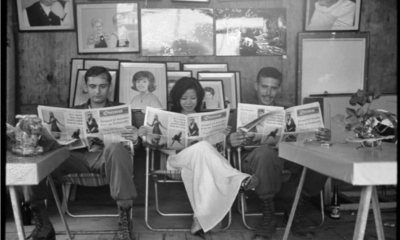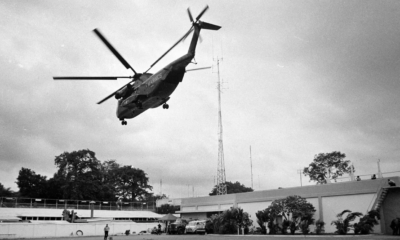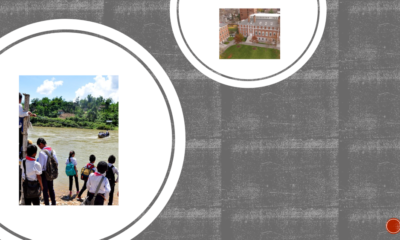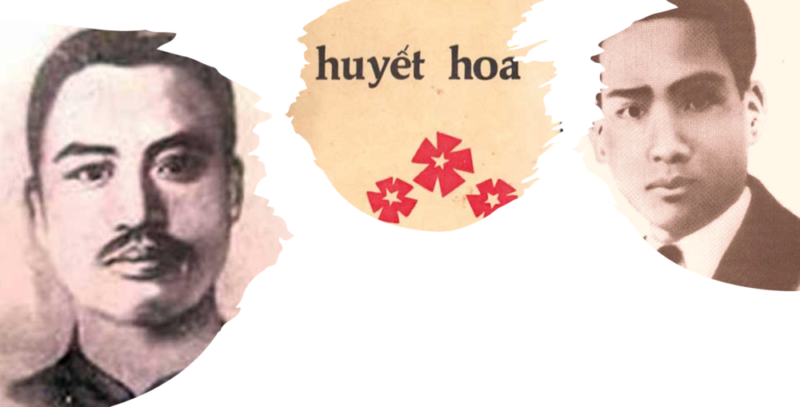Table of contents
Foreword: The Vietnamese National Party, 1945-1954 – Interviews with witness
Book I: The Nationalist Party of Greater Vietnam (Đại Việt Quốc Dân Đảng)
Introduction of The Nationalist Party of Greater Vietnam (Đại Việt Quốc Dân Đảng)
Nguyen Manh Hung
Introduction to Collection of Interview Transcripts
By Nguyen Manh Hung, Professor Emeritus, George Mason University
(translated and edited by Tuong Vu, University of Oregon)
Virginia, Fall 2021
Link to article
This collection of interview transcripts is the result of research on three national political parties – Dai Viet Quoc Dan Dang, Viet Nam Quoc Dan Dang, and Dai Viet Duy Dan Dang, during the period 1945-1954, through interviews with a number of witnesses – leaders, cadres, or party members who had participated directly or indirectly in Vietnamese politics during that period. The academic term of this research is called oral history.
The interviewees were people who either knew the interviewer or were introduced by some mutual friends. Interviewees were not selected according to scientific methods (such as scientific sampling), because there were not many people left with knowledge of the period we wanted to investigate. We tried to interview as many people as possible, especially political party leaders, starting with close friends and then, through introductions, gradually spreading to others. The number of interviewees belonging to each party varied because it depended on three factors: their place of residence (we did not have the means to interview people outside the US unless that person was present in the US while on business trips, visiting family, friends or former comrades), those knowledgeable about the research period (1945-1954), and those who agreed to let us interview (Vu Khac Khoan was the only one who refused and suggested Nghiem Xuan Hong instead).
The ways I addressed them depended on the circumstances and the level of my acquaintance, and was completely with a spirit of respect. There was someone I called “bác” [uncle] because he was my friend’s father, like Cung Thuc Van. Someone I called “cụ” [term for an elderly person] because at that time everyone called him “cụ”, like Linh Quang Vien. There was someone I called “cậu” [informal term for friends] because that was how we addressed each other when we were in school, like Nguyen Van Canh. There were people I called “ông” [a more formal term for a male of roughly equal age or status] since we became close friends only after I returned from studying in the US, like Pham Van Lieu. When I first met, someone called me “ông” and I also reciprocated by calling them “ông”, and so on. Some people called me “anh” [brother] and I called them “anh”. Sometimes people even used French words, like “toi” and “moi”, when addressing me.
Under the auspices of the Social Science Research Council, I took a six-month break from teaching to begin contacting the interviewees either personally or through friends, and interview them if convenient. Among the interviewees were figures considered to be party leaders, such as Ha Thuc Ky, Nguyen Ton Hoan, Bui Diem, Nguyen Tuong Ba, Nguyen Van Canh; or party members with special achievements, such as Dao Nhat Tien, Pham Van Lieu, Dinh Van De, Pham Quan; or family members of leaders, such as Do Dinh Tuan and Truong Thi Thinh.
By the end of 1986, we had completed 66 audio tapes, each 60 minutes long, marked from VP-NMH-A001 to VP-NMH-A066. In addition, with the consent of historian Le Manh Hung, we were allowed to record and publish his interview with Nguyen Dinh Tu, numbered VP-LMH-A067 through VP-LMH-A072, and the interview with Tran Kim Phuong jointly conducted by both of us (Nguyen Manh Hung and Le Manh Hung), numbered VP-NMH-NMH/LMH-A073. In 2021, I had the opportunity to interview two more important figures of the Duy Dan Party, Doan Viet Hoat, recorded in MP3, numbered VP-NMH-074, and Trinh Dinh Thang, numbered VP-NMH-075.
Before I could listen to the tapes and transcribe them, a job that would require a lot of time and effort, some unexpected incidents happened and caused the work to be postponed. About 10 years ago, some young friends of mine in California started the task. After having transcribed two interviews with Dai Viet party figures (those of Pham Van Lieu and Truong Thi Thinh), the group discontinued the work due to a lack of resources. Recently, in 2020, a philanthropist, Mr. Ngo Van, agreed to provide financial resources for the US-Vietnam Research Center at the University of Oregon to have all those tapes transcribed, and the job was finally completed.
Oral history usually has the following characteristics. First, it contains vivid, immediate, unadorned, spontaneous responses to questions unknown in advance by the interviewees, so it’s relatively more truthful. Second, it is influenced by the subjectivity of the interviewees and their fading of memory of events that occurred long ago. Respondents may forget or misremember, or only remember what they want to remember (selective memory). Third, Vietnamese culture often makes people cautious [in their speeches] to avoid causing conflicts.
In addition, spoken words – direct responses, without the opportunity to contemplate – are different from written texts. They contain many redundant repetitions and unnecessary words such as “then, is, but”. There are words that are supposed to come after other words but were said first. Sometimes there are meaningless or mismatched places because the speaker jumped from one thought to another. At times, the interviewees even made statements that contradicted each other and themselves.
In addition, most of these tapes were made 35 years ago, and some parts are difficult to hear, especially the names of people, places, and passages in French or English, and words spoken at the end of sentences when the speaker’s voice dropped and syllables shortened or omitted. At least three people listened over and over to each tape: the first person [name withheld for various reasons] heard and transcribed it, then Dr. Nguyen Luong Hai Khoi, and finally, me. There were places where we couldn’t hear or understand very well; we transcribed what we understood and added some dots (…) or question marks (?) so that other researchers, if desired, can listen again and check for themselves.
We respect interviewees and do not fact-check their statements. We have tried our best to listen to the tapes over and over again to get them right. However, mistakes were inevitable; in such cases, we ask for forgiveness and hope that readers will point them out for us to correct.
Each interview begins with a brief introduction and summary of the main ideas, but leaves the details for readers to discover for themselves through the full text of the interview because, sometimes, the devil is in the details. Reading the interview, readers may feel a sense of surprise, discovery, delight, frustration, doubt, or a combination of these feelings.
Initially, we planned to archive those tapes at the Library of Congress after the project was completed. While waiting to be transcribed, the tapes were kept at the Indochina Institute at George Mason University. In 2007, when the Indochina Institute was closed, these tapes and all Indochina Institute documents were transferred to the Vietnam Center and Sam Johnson Vietnam Archive, Texas Tech University, and classified under a file named “Nguyen Manh Hung Collection.”
In 2020, the US-Vietnam Center at the University of Oregon decided to hire transcribers of those tapes. The Center also maintains a set of copies of those tapes and intends to gradually publish transcripts of the interviews on the Center’s (Vietnamese-language) website at this link: https://usvietnam.uoregon.edu.
Before the interviews, we made it clear that the tapes would be published and archived for researchers’ reference. All interviewees agreed without any conditions, except for three. Dr. Nguyen Ton Hoan and Mr. Hoang Tuong Cung Thuc Van at that time set the condition that we only publicize the tapes 5 years after their death. Mr. Vu Van Phan allowed the publication of the transcripts only after his death. Dr. Hoan died in 2001 (19 years ago), while Hoang Tuong died in 2006 (14 years ago), and Mr. Vu Van Phan passed away in 2012 (9 years ago). Thus, all interviews can now be made public.
All the interviewees who are still alive are now over 70 years old, but at that time some of them were quite young. Reading the transcripts, one can see that older people were often – often but not always – more reserved than their younger counterparts who tended to be less reserved in their criticisms.
In this collection of interviews, we did the job of verbatim recording, transcribing, introducing, and summarizing the transcripts. The rest is their words without addition or deletion, except in the case of redundant words such as “then, is, that” or repetitions. We placed “…” or “?” where we couldn’t hear or understand clearly.
After being interviewed by us, several of the interviewees wrote and published their personal memoirs. Hoang Tuong published Viet Nam Đau Tranh 1930-1954 [The Vietnam Struggle 1930-1954] (Van Khoa, 1987). Pham Van Lieu wrote Tra Ta Song Nui [Demand to Return Our Homeland or Give me back my Homeland], 3 volumes (Van Hoc, 2002-2004). Ha Thuc Ky’s memoir is titled Song Con Voi Dan Toc [Living and Dying with the Nation] (Phuong Nghi, 2009). Memoirs reflect facts and observations that the authors have had time to contemplate, select, and disseminate; they do not have to be exactly the same as the facts and observations they had mentioned earlier during our interviews.
We have no ambition to write a history of the nationalist parties in the days of August 1945, but only provide raw materials, through the words of the people involved, for researchers to use. We hope the materials will supplement existing sources to help scholars assess events and deepen their understanding to answer three major questions related to the August 1945 Revolution. These questions are:
- What was the balance of military and political forces between the nationalists and the communists during that time? What factors influenced that balance?
- On the nationalist side, was there a decision to seize power on August 19, 1945? Who was responsible for that decision and why?
- What effects did the communist takeover of power have on non-communist parties and their future?
We would like to thank those who have contributed to the publication and dissemination of this collection of transcripts. First, the Social Science Research Council funded the project to get it started. Second, historical witnesses kindly allowed me to interview them; without them, these interviews would not have happened. Third, those who expended much time and effort listening to and transcribing the tapes, without which there is a good chance that this collection of materials would end up [or languish] in one of the two research centers of the University of Oregon and Texas Tech University, and may not be widely available to researchers. Fourth, the people managed this project: Professor Vu Tuong and Dr. Nguyen Luong Hai Khoi. Fifth, friends who encouraged and introduced people to be interviewed, provided valuable documents, technical assistance, and edited the manuscript, including Nguyen Van Canh, Dinh Truong Chinh, Cao The Dung, Nguyen Tuong Giang, Nguyen Thuong Hiep, Le Manh Hung, Nguyen Tuong Thiet, Le Vu, and especially Dao Nguyen Dao Da Thao for her art work and Dinh Quang Anh Thai who took a lot of time and effort to mark up and correct spelling errors in the first drafts. Last and not least, Ngo Van who sponsored this project; without him, I don’t know when this document would see the light of day.
Finally, an apology to the deceased for not being able to complete the compilation of this collection before their death.
Interviewing and transcribing are certainly not free from unintended errors. I personally accept that responsibility and hope to be forgiven by readers and researchers.

 Politics & Economy4 years ago
Politics & Economy4 years ago
 Politics & Economy1 year ago
Politics & Economy1 year ago
 After 19751 year ago
After 19751 year ago
 ARCHIVES5 years ago
ARCHIVES5 years ago
 Society & Culture5 years ago
Society & Culture5 years ago
 Politics & Economy4 years ago
Politics & Economy4 years ago
 Politics & Economy5 years ago
Politics & Economy5 years ago
 Politics & Economy4 years ago
Politics & Economy4 years ago







